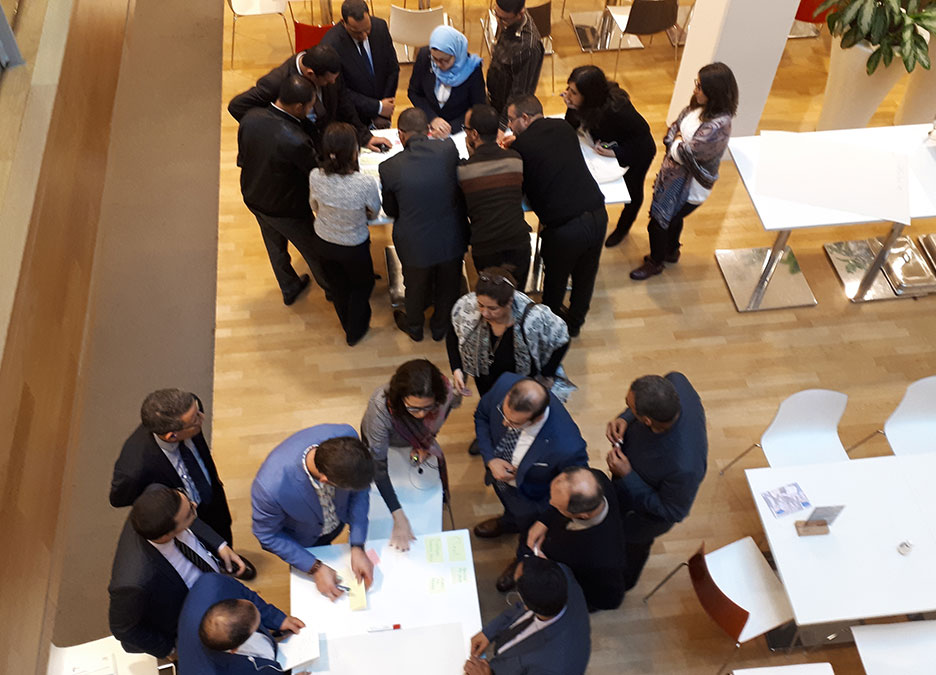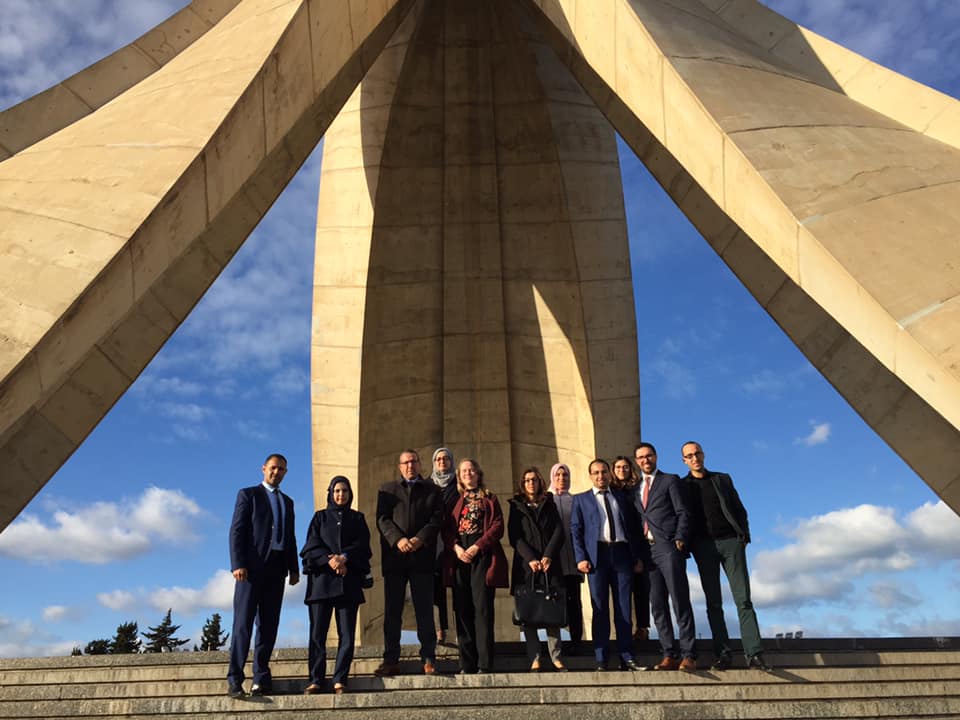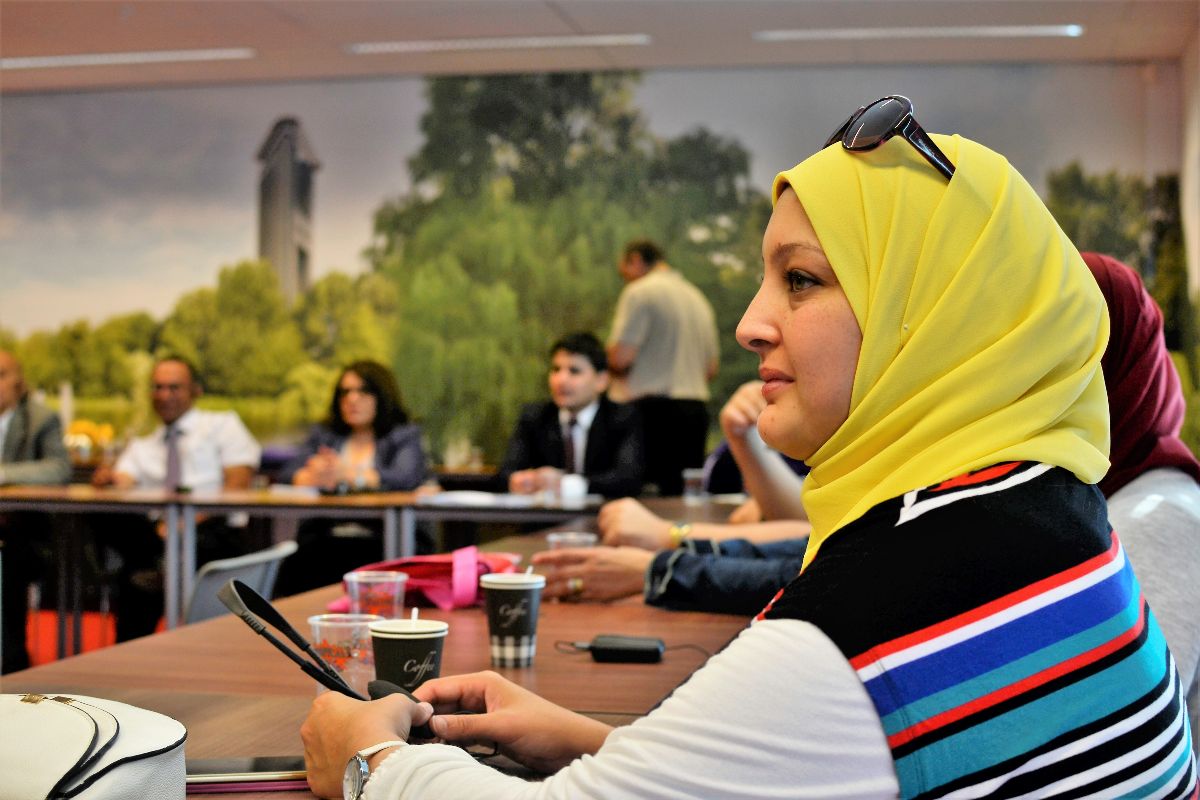Decentralisation has become a key priority in Algeria. In recent years, a new “Code Communal et de Wilaya” has sought to empower local government officials at both the province and municipality levels in ways that will contribute to social accountability and local economic development.

As part of this effort to strengthen capacity, a two-year programme — led by the Dutch Ministry of Foreign Affairs and the Algerian Ministry of Interior — builds on the bilateral efforts to improve relations and support sustainable democratic transition in Algeria.
The Hague Academy, working in tandem with a consortium of partners, was chosen to assist the Algerian government in this era of local governance reform. The result was a two-part programme that combined practical exercises, group discussions, case studies and study visits.
“The main purpose of this training aspired to introduce principles of local governance and decentralisation, and exchange knowledge and expertise on citizen participation, social accountability and the interplay between citizens and government institutions,” said Cecile Meijs, the director of The Hague Academy.
“It was an excellent programme, especially in its first part as it enabled us to grasp new notions and look at solutions with a different eye.”
In December 2018, 24 local government officials representing 22 provinces or municipalities in Algeria convened for the first training session in The Hague. The two-week programme introduced the basic concepts of decentralisation and local governance through a series of study visits. The participants traveled to the Dutch Ministry of Interior to experience first-hand how Dutch local governance and the fiscal decentralisation system works in the Netherlands. The group also gained insights into the responsibilities of government at the provincial level and its role in contributing to transparency and effective governance.
All told, experts from the Dutch ministries of interior and foreign affairs, and The Hague and Zeist municipalities contributed their knowledge and experience with the participants.
“The featured study visits and the focus on presenting the Dutch perspective was a real insiders experience,” said Mohamed Alger, director at the Algerian Ministry of Interior. “It was an excellent programme, especially in its first part as it enabled us to grasp new notions and look at solutions with a different eye.”
In the final days of the programme’s first leg, the participants also discussed strategies for change management and started developing a strategy to effectively implement their ideas back home.

The second leg of the training took place from 4 to 7 February 2019 in Algeria where the group returned to address the implementation of their respective back home action plans. The plans dealt with a range of challenges, including:
- Informal and unauthorised building construction in Meftah, Province of Blida;
- Weak contribution of the built heritage to the financial resources of Sidi Aich, Province of Bejaia;
- Strengthening the thermal tourism sector in Hammam Soukhna, Province of Setif;
- The informal landfill sites in the municipality of El Harrac; and
- The exclusion of the farmers in the promotion process of the potato agricultural sector.
On the final day, the Dutch Deputy Ambassador in Algiers, Mr. Daniël Stork, acknowledged the importance of all the topics discussed. “I have been impressed by the presentation skills of the participants and the good quality of the action plans. Your visions have been carefully identified, and the objectives are specific, measurable, achievable, realistic, and timely.”
“Considering the need to build the capacity of local governments and to facilitate a sustainable and inclusive implementation of their respective policies, we hope we can continue this positive exchange and cooperation with the Algerian government,” said Dayana Al-Alam, a programme manager with the Academy.
Indeed, the programme will continue in the framework of a bilateral partnership between the People’s Democratic Republic of Algeria and the Kingdom of the Netherlands. And The Hague Academy will carry on supporting Algeria’s efforts to strengthen decentralisation and enhance local inclusive governance.
These efforts are also organised in partnership with the International Cooperation Agency of the Association of Dutch Municipalities (VNG International) and the International Development Center for Innovative Local Governance (CILG). The Dutch Ministry of Foreign Affairs funds the training programme which is commissioned by RVO.
Related Reading
 Shiraka Programme
Shiraka Programme
February 2019
Shiraka is a Netherlands-MENA partnership initiated by the Dutch Ministry of Foreign Affairs and commissioned by the Netherlands Enterprise Agency (RVO). The programme convenes participants to improve bilateral relations and support sustainable democratic transitions in the MENA-region. Learn more about how to apply.
